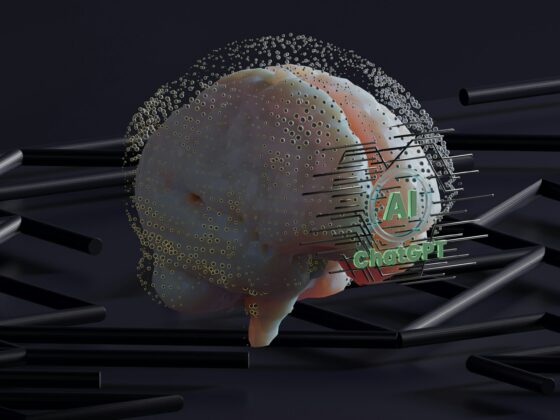Booking’s growing perception problem is becoming a legal problem. Is LVMH becoming the new “winner’s brand”? IHG is innovating and pioneering their tech stack. Thoughts on hyper-personalization.
Hello,
When it comes to new technology the future is amazing, we have so many new things we can do with tech every day. But then I realize that most hotel PMS systems are sitting in a basement set-up with the login “Admin” “123456”. There’s still so much to do, so here is my newsletter. On time.
Best, Martin
About me: I'm a fractional CMO for large travel technology companies helping turn them into industry leaders. I'm also the co-founder of 10minutes.news a hotel news media that is unsensational, factual and keeps hoteliers updated on the industry – also it is the most read hotel newsletter in Europe. See the international edition of the newsletter and subscribe to it here. Note: I’m also a co-founder of Klairhaus, a premium desk accessories brand that makes products with care for craftsmanship and design.
On Booking’s Perception problem
One could say that the apparent onslaught of legal and regulative issues that is hitting Booking lately is due to their size and dominant position on the market. But I think that would be incorrect. I think their problem is that they’re simply not doing enough to work with their supply partners to become their friends. So they’re perceived as a necessary evil. This recent interview with The Verge is interesting. The parity discussion is quite telling. From Booking’s point of view they’re the heroes of the story bringing invaluable demand to hotels, so they should be rewarded, and they do a great job there. But they have a purely transactional relationship with hotels. For years they bid on hotel’s names, taking the most valuable revenue from hotels. And they still do, unless asked not to. What Booking lacks is showing what they are doing to give back to their supply partners. The “free” things that they don’t need to do, but which they do to help the market. They probably do things (and I know there are projects in the works) but they’re doing a pretty lousy job to promote them. Delivering a lot of reservations is perceived as their duty, hotels pay for it. As the CEO says in the interview, they’d rather not pay publicists and put the money into engineers. It kind of says it all. To avoid being perceived as greedy, every company that becomes the market leader needs to invest in goodwill and activities to show how they bring value. And Booking is mostly being perceived as greedy. Whether it is true or not is a separate issue.
GLENN FOGEL ON THE VERGE
Is LVMH taking Nike’s position as the winner’s brand?
In an unusual manner, LVMH became one of the main sponsors of the Olympics, with quite a prominent presence, including all the medal trays made by Louis Vouitton and frequent TV appearances. LVMH doesn’t do advertising (nor marketing as their CEO once said). Seeing them appear so prominently at the Olympics was interesting. There was quite some luxury inspired themes across the games. Such as the basketball court with LV style monograms etc. It is interesting to see LVMH in the sports space, a place that used to be owned by Nike. But this year even the marathon winners didn’t wear Nikes (Nike started as a running shoe, remember), they wore Adidas. LVMH seems to be taking more space as the winner’s brand. And Nike is giving it up. It’s an epic position to own. Maybe the best for any brand.
LVMH ON LUXURY PARTNERSHIPS
Influencers in travel
In many of my interactions with hotels, influencers were not top of mind. A few hotels have done great, many have not. Influencers are used to working with consumer goods companies, where supply constraints aren’t an issue. So they often expect payments, not freebies. But hotels rarely need additional demand in high season (whereas consumer goods companies usually do). Some interesting tips on how to select out smaller local influencers could help. And if it is about giving a free stay to promote low-season that could be a win-win for everyone.
HOTEL MARKETING TIPS, HOW TO WORK WITH INFLUENCERS
80% “direct” at IHG
I’m quite skeptical of the headline, but that’s not so important. What is great here is to see one of the major hotel chains rethinking one of their core technologies. That they did this with Amadeus goes to show that becoming a technology company is not easy, and despite what many think, tech isn’t cheap. The new system is built for attribute based selling, today it is great for upsells, but could technically totally change the way hotel pricing happens. But there are quite some systems that need to be updated for that to happen.
IHG DIRECT BOOKINGS
Happier employees tips
The hotel industry is a tough one for employees and we rarely give enough credit to the people behind the scenes that make great hotels great. Of course the GM is the one keeping the orchestra playing, firefighting all the disruptions. But the teams in the hotel need to learn to smile as their cross guests, after cleaning rooms that guests have left in a mess, “because they can”, sometimes guests even come in ordering people around like their own the place, expecting miracles because they paid for a few nights. And hotel employees put on a straight face and try their best to service they can. So somehow keeping those employees happy, when they put up with a lot (and anyone who worked in a hotel knows that they put up with a lot) is hard. I don’t think there’s an easy way to do it. But these tips help.
SERVICE-PROFIT CYCLE
THOUGHTS:
Hyper-personalization
The idea of hyper-personalization is back. A few years ago it was all the rage and then it went into a “winter” phase as most of the tech hype was around metaverse. But with AI at the center and in a large hype cycle, it has come back full force.
Hyper personalization in hotels isn’t new. It is the basic of good hospitality. It’s been done for centuries in great hotels. What is new is being able to do it at scale. Technology and AI offer the promise of being able to scale personalization for any hotel, even the budget hotels. This means more service and more satisfied customers.
The theory is easy, upload a ton of data into a machine learning system, or generative AI, find patterns, and scale those to guests which match the multiple characteristics. The reality however is a lot harder. Hotel data isn’t very good. Systems to retrieve the data are expensive and require a lot of maintenance. The data is rarely very clean. And there is not a lot of clean links between the data points such as the guest, the F&B, the Spa, services etc.
Room attributes are a great example, because we don’t have attribute preferences for guests we don’t know if they prefer a bathtub or a shower. Their last 3 stays were in a room with a bathtub, but was that because they asked for it or because it was what the hotel had available. But implementing room attributes means changing the entire workflow.
Much of this is due to legacy core systems that weren’t built for this. And because the future is always quite vague. We get wild promises of huge revenue growth that are dubious at best, edge case successes that seem too good to be true etc.
But if we look at the way the world is going, hyper-personalization is everywhere. All the tech products we use today are personalized. Google search, Amazon, Netflix, Youtube, iPhones, Android etc. Not personalized experiences are becoming annoying, thoughts like “how did they not know that I prefer showers, I commented about it in my last review”. More and more we expect the tech to communicate seamlessly.
So it is really just a matter of time for guests to expect this as the default. The tech to do this mostly exists, not all of it is connected yet and we haven’t built all the user interfaces for hotels to have it available daily. But that’s because a small number of hotels have upgraded their technology.
If we can speed up the switch from legacy systems, project ourselves into the future, realize that the benefits will be in years, things will be great. Those hotels who get an early start will also encounter more bumps in the road, but they will have the competitive advantage.





